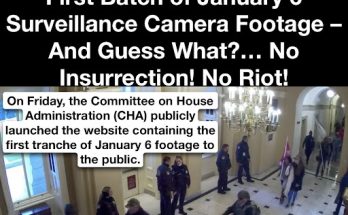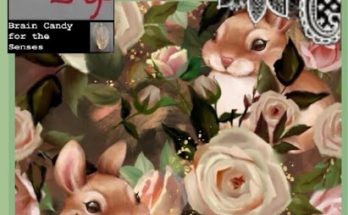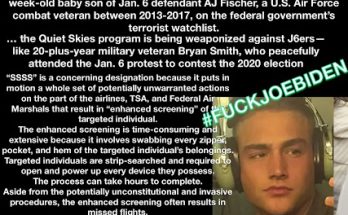In the Spotlight
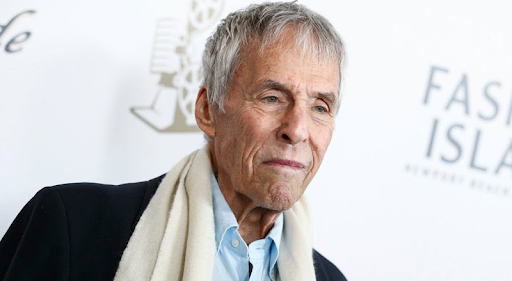
https://www.billboard.com/music/music-news/carole-bayer-sager-shof-interview-8515674/amp/
Carole Bayer Sager Looks Back on Songwriting With Burt Bacharach, Marvin Hamlisch & Bob Dylan
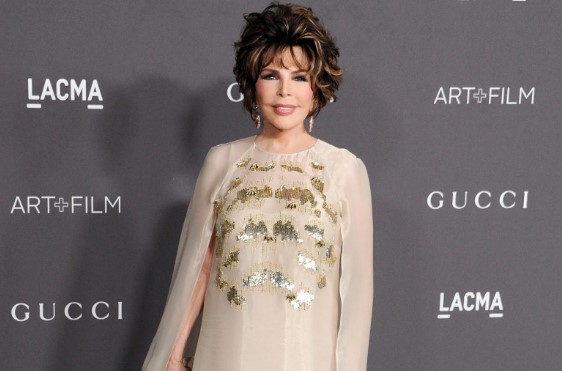
Carole Bayer Sager, recipient of this year’s Songwriters Hall of Fame Johnny Mercer Award, scored a Billboard Hot 100 No. 2 hit with her first record, “A Groovy Kind of Love.” But that was only the beginning of a songwriting career that’s delivered countless hits including “Arthur’s Theme,” “Don’t Cry Out Loud,” “It’s My Turn,” “Nobody Does It Better” and “That’s What Friends Are For” — the latter of which became a rallying call for the fight against AIDS and raised funds for research and prevention.
An instinctive collaborator, Bayer Sager shares with Billboard the narratives behind some of her greatest hits, the hilarious story of the one songwriter she didn’t quite jibe with, and what she considers the “plus plus” of songwriting.
You scored a big hit with your very first cut, “A Groovy Kind of Love.” Were you thinking “I’ve got it made,” or did you feel like there was some beginner’s luck at play?
It was amazing. I had been signed to Screen Gems back then and they had just recently bought Aldon Music, which was the place that I just had such incredible respect for their writers — Carole King, Gerry Goffin, and Barry Mann and Neil Sedaka — and they all ended up at Screen Gems. I was quite young, and they put me with a young girl there, Toni Wine, and one of the first songs we wrote together was “A Groovy Kind of Love.” Toni had a great voice, so she made the demo and unbeknownst to us it got sent to England and this group called the Mindbenders, who I’d never heard of, recorded it and when I first listened to it I thought, “Well that’s good but I like Toni’s version of it better because it was slower.” And then comes this hit I hear it on the radio and I thought, “Oh my God, this is so easy. This is so amazing.” But, I will say, after “Groovy Kind of Love” it was a while until I had a second hit. In the first year it was like, “Oh yeah, I wrote ‘Groovy Kind of Love’ and it’s good.” But by the sixth you’re wondering, is this the only hit I’ll ever write?
For all the amazing things that come with having an immediate smash, I suppose there also comes elevated pressure.
With yourself. But the thing is, there was nothing else I ever really wanted to do but write songs, so it wasn’t so much like I’m going to go do something else instead it was more, I’m just going to do this until I get it right again. I did do a Broadway show in between there. It was a big disaster, and Screen Gems let me go, but not before I did three cuts with the Monkees and some other records that were encouraging. But then, I found myself with a show that closed in three nights and I didn’t know where to go. I ended up at Metromedia, where I was introduced to Peter Allen, who I instantly liked. We started writing, plus I had heard Melissa Manchester singing behind Bette Midler at one of her early concerts and I loved Melissa’s voice, so I called Barry Manilow and I ended up reaching Melissa, so there was that whole period in the ’70s I was writing with Melissa and Peter and that started to bring back that hit feeling. Peter and I wrote “Don’t Cry Out Loud” for Melissa, and Melissa and I wrote “Midnight Blue” for her and “Come in From the Rain.” And then I met Marvin Hamlisch in the ’70s, and we wrote “Nobody Does it Better” for the James Bond film [The Spy Who Loved Me]. So everything started up again.
What was the inspiration for “A Groovy Kind of Love”?
We were just sitting in the little cubicles Screen Gems provided for us, because the big offices were for Carole King and Gerry Goffin, and we were at an upright piano and Toni Wine played this little melody and I started to hear words, which is often the case with how I write. It was very easy to write, it just seemed to flow in an easy way. The funny thing is, “Groovy Kind of Love” for me defines what it means to be a songwriter in the best way because, I think it was 20-odd years later, when Phil Collins, unbeknownst to us, rerecorded it, much more to my liking – the tempo was slower – and he proceeded to have a No. 1 record with it. I think that year it was the most performed song at BMI. Once a song is out there, it’s alive and you never know who may come along and rerecord it. They don’t have to ask your permission once the song is recorded for the first time. So that not only was thrilling, but was like, “Wow these songs have a life.” You never know who or when someone’s going to remember one of your songs.
Have there been other moments when you’ve been particularly excited about an artist’s interpretation of a song, maybe one you weren’t expecting?
Yes, many times. But they didn’t necessarily really result in hit songs. I wrote a little song with Bruce Roberts once called “Don’t You Love Me Anymore” and one day someone said to me, “Did you know Ray Charles recorded your song?” And I said, “Ray Charles recorded my song?” And sure enough, I looked it up and there it was. A little unknown song. You just never know.
Did you reach out to Ray? Did he reach out to you?
No. I was just thrilled because I’m a fan. It’s happened so many times. Radiohead rerecording “Nobody Does It Better” and them saying it’s the sexiest song ever written – all those years later. That’s the “plus plus” of songwriting. Sometimes to this day someone will record “The Prayer” that I wrote with David Foster, and I won’t even know about it and some will say, “Did you hear this?”
We’d love to hear the stories behind some of your songs. I’d be remiss if we didn’t talk about “That What Friends Are For.”
It’s a great story. I was married to Burt Bacharach at the time, and he was asked to score a film called Night Shift—it became kind of a cult classic with Henry Winkler and Michael Keaton. And we were asked to write three songs for the film and one of the songs we wrote was “That’s What Friends are For.” It was recorded by Rod Stewart, but at the time, I remember Warner Records saying they thought it was a little too AC, adult contemporary, to make it as a single so it just kind of came and went. And then a number of years later we were recording Dionne Warwick and Burt—he and Dionne had reunited—and he played her the song and she loved it and said she wanted to do it as a duet with Stevie Wonder. We wrote the song for one thing and now it’s going to be rerecorded.
So we were at the studio and Dionne did her vocal and Stevie was coming down to put his vocal on. I was talking to my dear friend Elizabeth Taylor, and she had never met Stevie. So she came down to the studio as Stevie was putting his vocal down, and because she was in the studio it just flashed through my mind that we should put a couple more people on this song and make it an anthem for AIDS. We put Gladys Knight on, she was incredible, and then we needed one more voice to hammer it home. We actually picked Luther Vandross, who was amazing, but Clive Davis said he didn’t have quite enough power and Clive called out Elton John, and Elton came and put his voice on, and sometimes you just know. And we all just knew. I remember Elton saying, ‘If this isn’t a No. 1 hit I’m leaving the business.’ It was encouraging to hear his response, and fortunately it was. This song always meant even more to me because we were able to give a large sum of money to AmFar at the time. To me it’s still an anthem for AIDS research, and when a song has a higher purpose it always means a little more to you.
That song certainly ascended to incredible heights.
I can also tell you that Burt and I fought in writing it because I wasn’t hearing properly and he was playing that 16th note as a pickup. I was singing, “I never thought I’d feel this way” and he said, “That’s not what I’m playing,” and there was the 16th note. And I kind of in anger threw out the word, “Well just say ‘and.’ And I…” And it’s so fun because the first time I heard it on the radio, I thought, you know, he’s right. That little 16th note. I said it in defense, but it was better lyrically because it made you feel like you were coming in in the middle of a conversation. I owe that to Burt’s tenacity, but he turned out to be right.
How about “Nobody Does it Better”?
I had just met Marvin Hamlisch. A&M had just put us together to write something for a TV show they had in development and that turned out to be nothing much at all. So Marvin said, “When I get back from London we can get together again?” And I said, “Oh, you’re going to London?” and he said, “Yes, I’m going to London to score the next James Bond film.” And I said “that should be great,” and as I was getting ready to leave I said, “I think if I were writing song for James Bond I’d call it ‘Nobody Does It Better.’” It just came into my head. And he went, “Wow,” and he went over to the piano and he was able to come up with that chorus melodically, so I finished the chorus with him right there. And he said, “I’m going to go to London, I need to convince the Broccolis—they produce all the Bond movies—that they should give you an opportunity to write this lyric,” because they were used to using proven film lyricists.
And you had just met Marvin…
I had just met him. It was off the top of my head, that’s what came into my mind. So he went to London and convinced them they should give me this chance. And he sent back the rest of the melody, with a verse. And he said, “OK, now you write the rest of the lyrics.” Which is my least favorite way to write—to have the melody and you need to fill it in the words.
Is that because that way the song already has parameters around it?
Yeah, already my words have to fit a melodic structure. My favorite way to write is being in the room with the collaborator I’m writing with, whether it be Marvin or Peter or Melissa or Burt Bacharach or David Foster or Kenny Edmonds or so many of the people I’ve been so fortunate to write with through the years. So it was hard to do it on my own, and I’d call him and he’d like some words but thought this or that line could be better. It was challenging, but I found out I could do it. We both decided that Carly would be amazing and Marvin went there and played it for her and she loved it, and the rest is sort of history. And Richard Perry produced it and he did a great job.
And then you have the famous collaboration, or not, with Bob Dylan for “Under Your Spell.”
Oh God, I wrote about that in my book. That was crazy. He had a barn out in Malibu and it was just so odd. Because if you just even think about it you would imagine him to be the least collaborative person you could imagine.
I don’t even picture him talking to people very often.
Yeah, the way you picture it is pretty much how it was. He had these sofa beds that were across from each other. He sat on one. I sat on the other. And it was like writing with a kid in grade school who covered their paper. He was playing a melody and I was throwing out words and he was going, “Ah, that’s good.” And I’d say something else and he’d go, “Mmmmm” but he’s not singing it back to me. And we’d keep going, and when he finally sings it back to me more than half of the things I thought I was giving him weren’t in the song. They just were missing, like he just did what he felt like. He used a few of my phrases but that was it. I said, “Bob, I don’t even know what you’re doing. I thought I was writing much more of this song than I ended up writing.”
What was his response?
He said, “Well, I wouldn’t have written this like this if you weren’t here.” And I said, “I don’t feel great about taking 50 percent.” And he said, “Well take 33 then.”
How did you two ever wind up in the same writing room?
He was actually seeing someone, a woman named Carole Childs, who was a high school friend of mine from way back. And she said to him, “You should write with my girlfriend Carole.” And they came here once for a party and he said, “Well we should try something” and I went out to his ranch, trying to look like a rock n’ roller. We were just total opposites. But it makes for a great story. I think when The New York Times reviewed it they even said, the most unlikely collaborators. But for me it was a great story. I was so thrilled I had that opportunity to sit with him even though he was the most solely… not chatty. When I write with people we talk, and then we get around to writing. It’s very warm and cozy, and the feeling at the end is like, this song could’ve been written by one person. It’s so nicely complete. And with Bob, it almost was entirely written by one person though I thought I was writing half of the song [laughs]. He’s a brilliant guy, and very odd, and that’s what happened.
And you, on the other hand, are a master collaborator.
Yes, I think I was practically born to collaborate. I have this weird ability. Woody Allen one did a film called Zelig and the whole premise of Zelig is that he would take on the characteristics of those around him. I often felt like Zelig because when I wrote with Melissa, I would kind of take on her M.O. of how she thought. Because she was going to be singing the song you wanted to get to that place where she was at, so that she could really sing it and own it. So you had to find that place that both she and you felt something similar. And the same with other people. It’s kind of chameleon-esque. I have that ability to find that place where you and your collaborator connect so that they are completely at ease. I think it’s one of my strongest suits as that I could adapt to who I was writing with.
That’s quite a gift to your collaborators, what you bring to the process. What is the greatest gift you get out of collaborating?
Well you get the song. And the song is like your child at that moment. Particularly if you really love it, it becomes really important to you. I remember when I was writing and producing with Burt. Radio is often quick to play an uptempo song and less quick to play a ballad, and if they do play a ballad it takes longer for the public to key into a ballad and want to hear it again. I remember with Burt we had a record called “On My Own,” it turned out to be for Patti LaBelle and Michael McDonald. And we co-produced it. I remember he and I were calling radio stations, they couldn’t believe it, and saying, “It’s Burt Bacharach and Carole Bayer Sager, and we were just calling to thank you for playing our song and asking if you could just play it for one more week because we really think if you give it one more week it will kick in.” These people couldn’t believe we were calling them. And we really did it because we had heard these were the stations that were going to drop the song and we really believed it needed one more week. And those phone calls made the difference of it being a hit or being relegated to some obscure place. We did that on more than one occasion, and I’m so glad we did because you just sometimes need that extra week of airplay.
These days, it’s a whole different world the way songs are released. What do you see as the pros and cons of songwriting these days?
It’s a whole ‘nother ball game. One of the pros is that a song can go from obscurity to being a song that can become a hit through airplay and digital means like Spotify or SoundCloud or all of these streaming services. That you could have a hit somewhere in that lineage. It’s such a different play, streaming — so different than just writing a really good song and getting it to radio. You don’t even to go radio first now. So it’s a whole ‘nother world. I feel grateful I wrote the songs I wrote when I wrote them because I’m not sure many of them would necessarily be hits today. There are different beats, there are different tracks, there are different lyrics. Some might, but some might not make it to top 40 as we know it or the radio as we know it. So I’m grateful I write the songs I wrote when I wrote them. I think there’s still room for songs like I write, but also there’s all new music that comes along with every new generation and some of it is just out of my ballpark, I wouldn’t know how to write it.
What have you heard recently where you’ve thought, I wish I’d written that, or this is just a really great song.
I like the songs of Ed Sheeran. He’s genuinely talented and he comes up with great songs. I like that song that Zedd and Maren Morris did, “The Middle.” There are some really good songs that come along. I loved the first time I heard “Moves Like Jagger” by Maroon 5 — that was a while back. I like this Billie Eilish, who I’m just getting into. She’s kind of fascinating. I liked H.E.R. the first time I heard her sing. I like Ariana Grande. I like Beyonce. I’m not sure all these songs will last, but I think they are certainly entertaining. I don’t think songs have the same life they did once upon a time because, as we talked about earlier, they don’t get rerecorded; they exist in their time and they go away. I would’ve loved to have written “Shallow,” I think that was a really good, well-written song. And I loved Camila Cabello’s “Havana.”
Are you writing much these days?
I actually am writing. I had two songs I wrote with Jonas Myrin, who I like very much writing with, on the Barbra Streisand album Walls, and we have a song together, Jonas and I, on the new Celine album coming out.
So you’re really right back in it.
I think I’m in a small lane of people who really still want a “song, song.”
What drew you to these projects?
I love writing, and I had stopped for a while. I was painting, and I felt a pull back to the music room, so we’ll see what happens. I just recently started really writing again. I just sent a song to [Andrea] Bocelli I’m hoping he likes. It’s a great feeling to still be able to do it and have someone want to sing it. It happens less frequently than when you’re in that sweet spot where it feels like everything you write people want to record.
I feel like your life has been a sweet spot. Look at the award you’re about to get – the Johnny Mercer Award.
It’s a great award. I kind of looked behind me when they said it at first. Like, “Me?” But I couldn’t be more thrilled to be acknowledged in this way, it’s just amazing—and unexpected for me.


